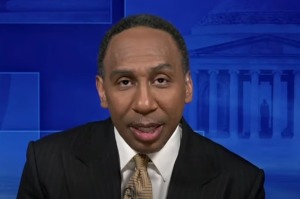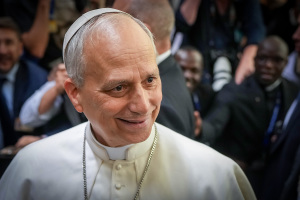Feminist Professor Pilloried by Fellow Leftists for Transracial, Transgender Comparison

A feminist philosopher who wrote in a scholarly journal that people should be able to change their race just like they can change gender faced a fierce backlash from fellow feminists and now fears being blacklisted.
In late March Rhodes College philosophy professor Rebecca Tuvel published an article in the feminst philosophy journal Hypatia titled "In Defense of Transracialism" where she reached the conclusion that "[c]onsiderations that support transgenderism seem to apply equally to transracialism," and so society "should also accept transracial individuals' decisions to change races."
In the article she explores the question as to whether people are more willing to embrace "transgender," individuals like Caitlyn Jenner, while dismissing those who identify as "transracial," such as former NAACP leader Rachel Dolezal who made news in 2015 after it was revealed that she is a white women who identifies as black. Other feminist philosophers, like the University of Tennessee's Nora Berenstain, were outraged.
Hundreds signed onto a letter to Hypatia requesting they retract the article and accused Tuvel of various misdeeds. As reported by the Daily Nous on May 1, on her Facebook page, Berenstain accused Tuvel of furthering "discursive transmisogynistic violence" because she had used exclusionary terms like "male genitalia" and "biological sex." Tuvel's work, she wrote, "painfully reflects a lack of engagement beyond white and cisgender privilege" and criticized her for "deadnaming" Jenner by referring to him as "Bruce," his name prior to his gender transition, something else the feminist objectors considered harmful. The article was updated on May 4, at Tuvel's request, removing "Bruce" from the text.
New York magazine writer Jesse Singal labeled the incident a "modern-day witch hunt," in a May 2 op-ed.
"We should want academics to write about complicated, difficult, hot-button issues, including identity. ... This whole episode should worry anybody who cares about academia's ability to engage in difficult issues at a time when outrage can spread faster than ever before," he concluded.
Jennifer E. Walsh, a dean and professor of political science at Azusa Pacific University, told The Christian Post on Wednesday that she believes the events are rather ironic.
In many fields in academia, she said, "we are seeing an unbounded exploration of different concepts, that at least in our lifetime haven't really been exposed."
"What struck me as I was reading about the controversy over the philosophy article was how traditional academia has been the bastion of academic and free thought. And sometimes it takes on a ridiculous form but at the same time there has been some safety in that free exploration," she added.
"And yet, we're seeing that has gone away now."
The backlash reportedly upset Tuvel so much so that she "burst into tears" before refusing to do a Wall Street Journal interview about it. She's now afraid she'll be blacklisted in academia.
While acknowledging that "hyperbolic" conversations are "not so foreign" within academic circles, Walsh lamented that people who would otherwise say that Tuvel's article was a worthy piece of scholarship now face such hostile censoring because it did not align with a politically correct outcome.
"People have often accused Christian higher ed institutions of engaging in some sort of censorship," she noted, but "in many senses we are much freer to explore truth in its truest form, without that censorship," something that has all but disappeared in secular academia.
Christian universities, she added, can be a resource where people can wrestle through some of these big questions as the conversation about whether identity is biologically determined or socially constructed is still "working its way through the general populace."
Moreover, the fundamental philosophical questions about what it means to be human are particularly relevant today for Christians in a post–2016 America. Following a tumultuous election cycle, many are sorting out what it means to be Christian, she added.
"If we can anchor ourselves in the truth of Scripture, if we can anchor ourselves in the Body of Christ and the Person of Christ then we find our mooring. It is when we unbound ourselves from those eternal truths that we start to drift," Walsh said.



























